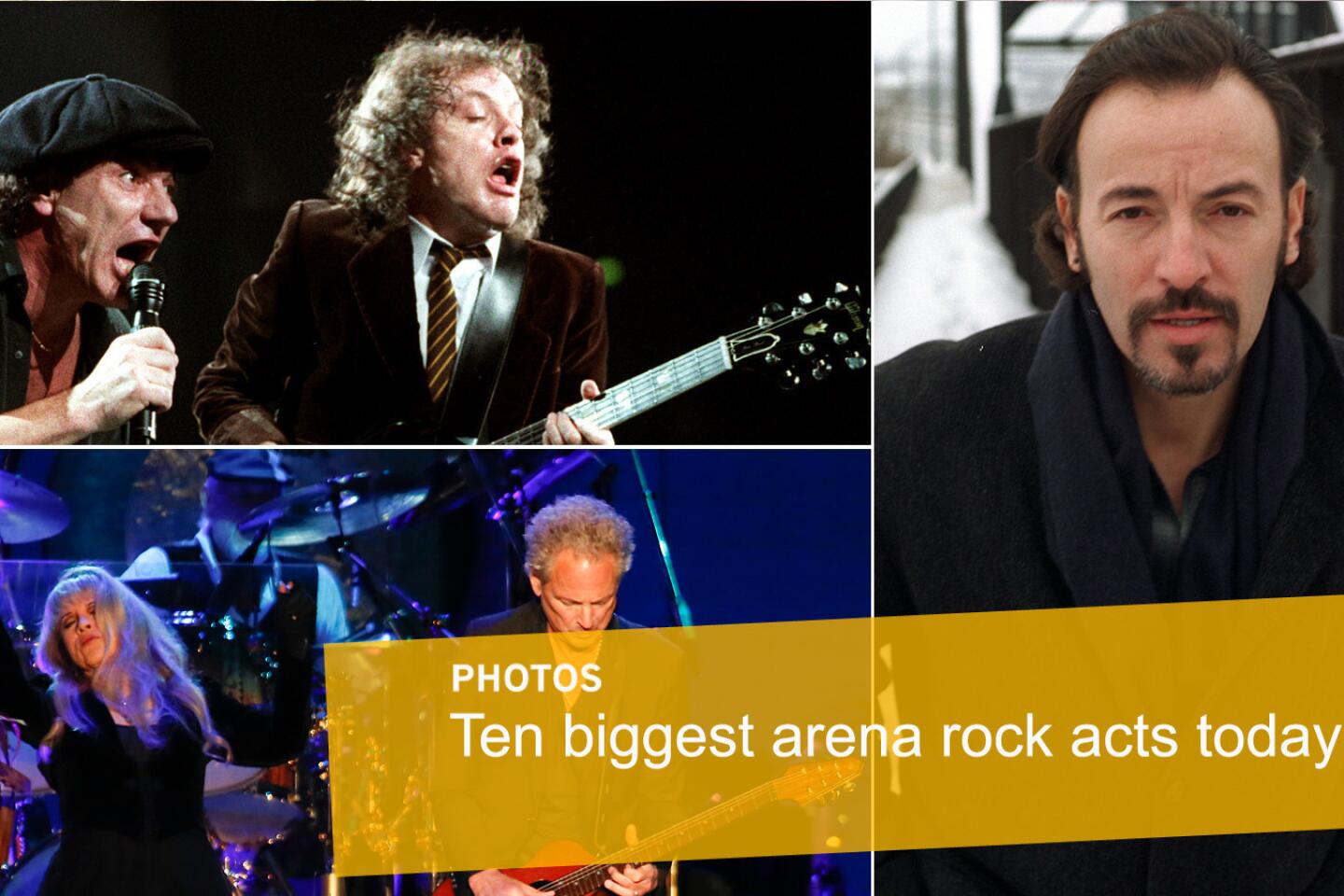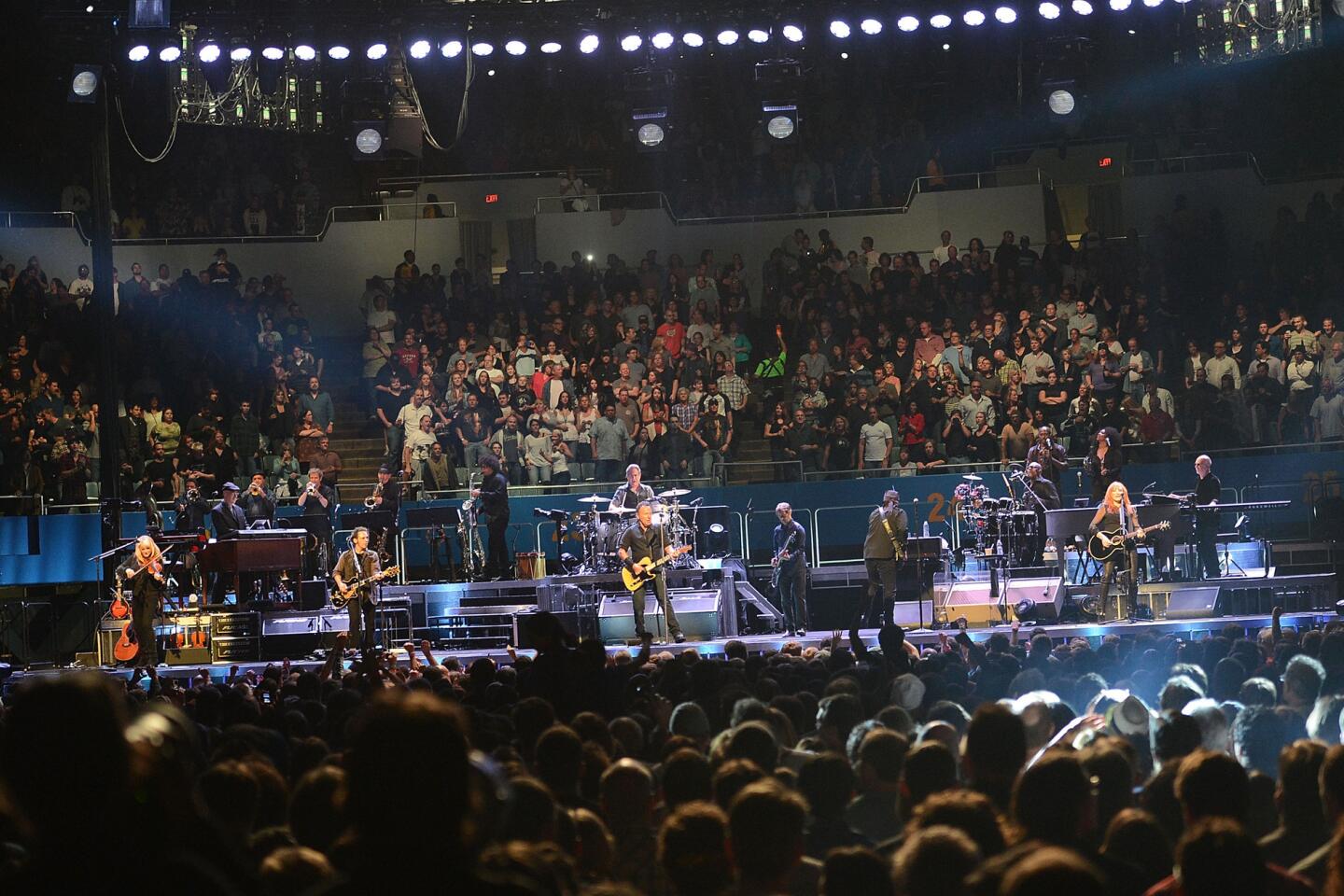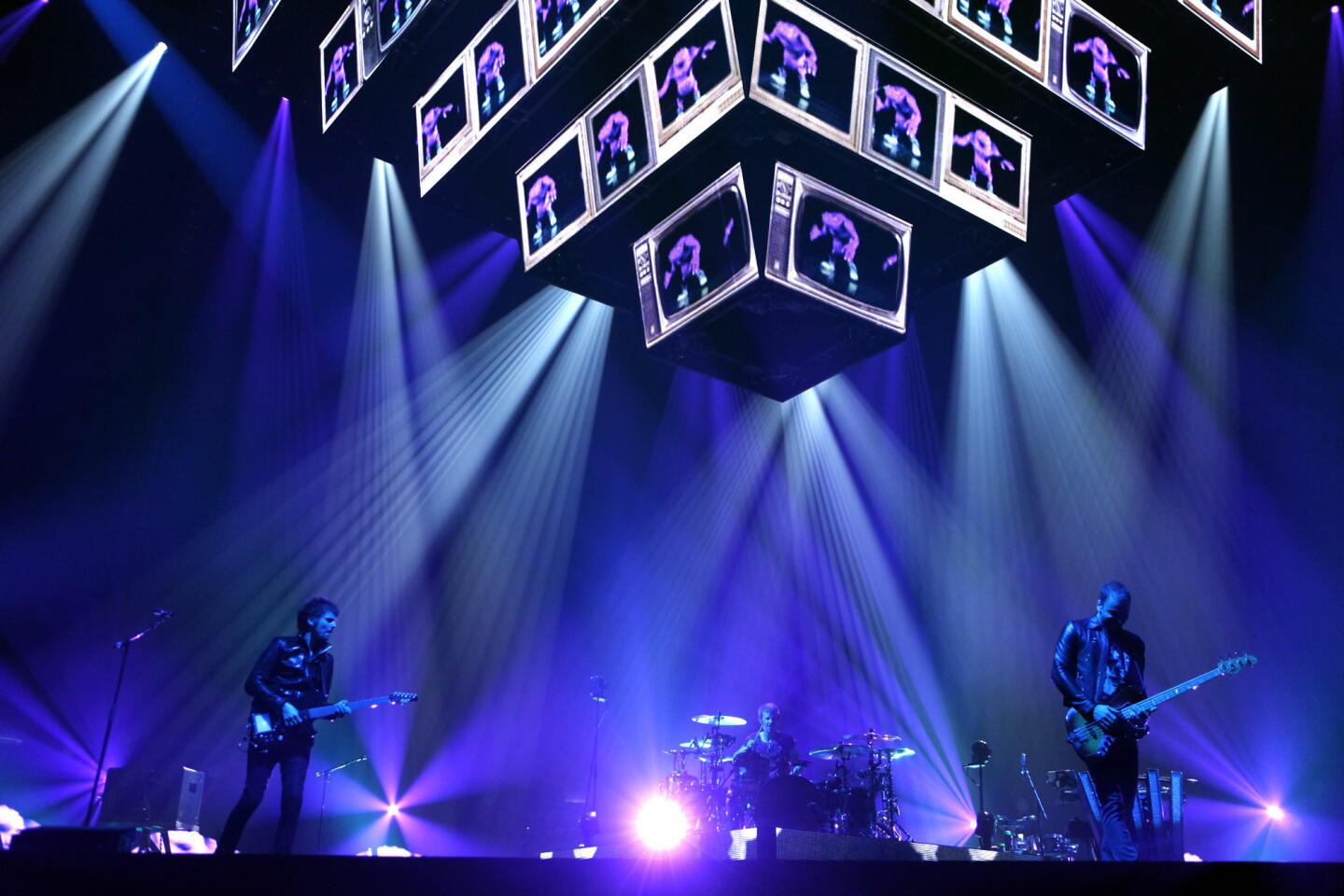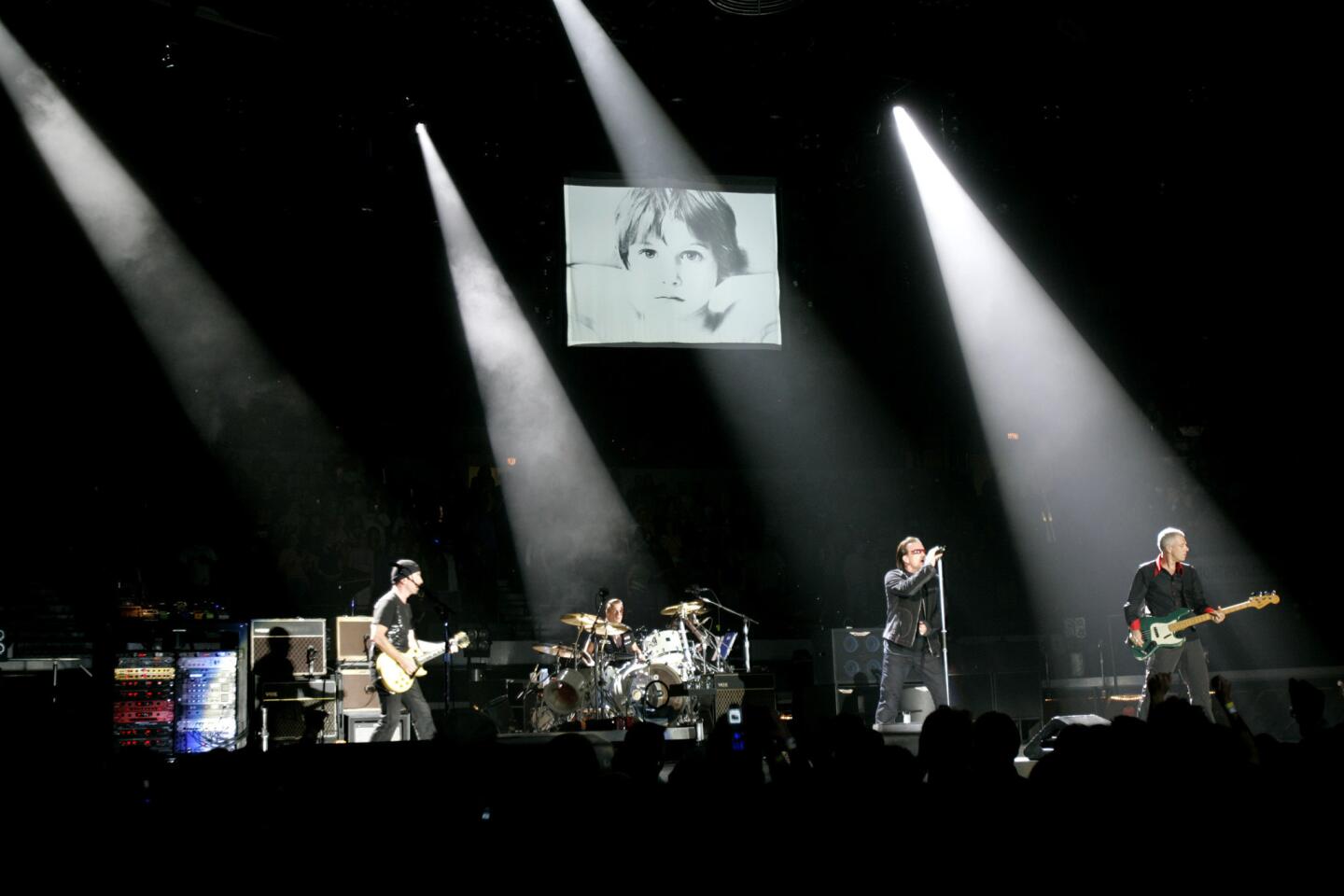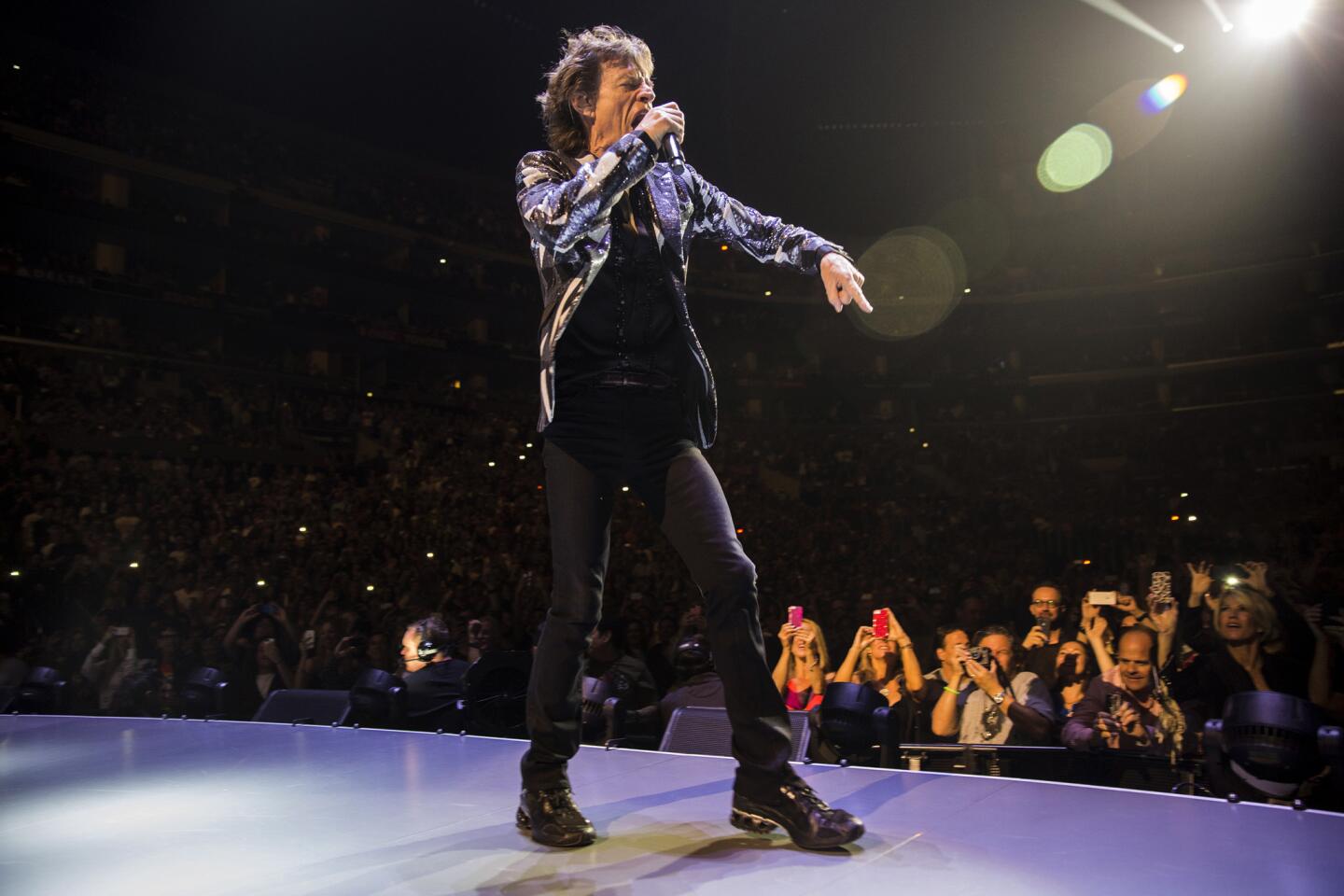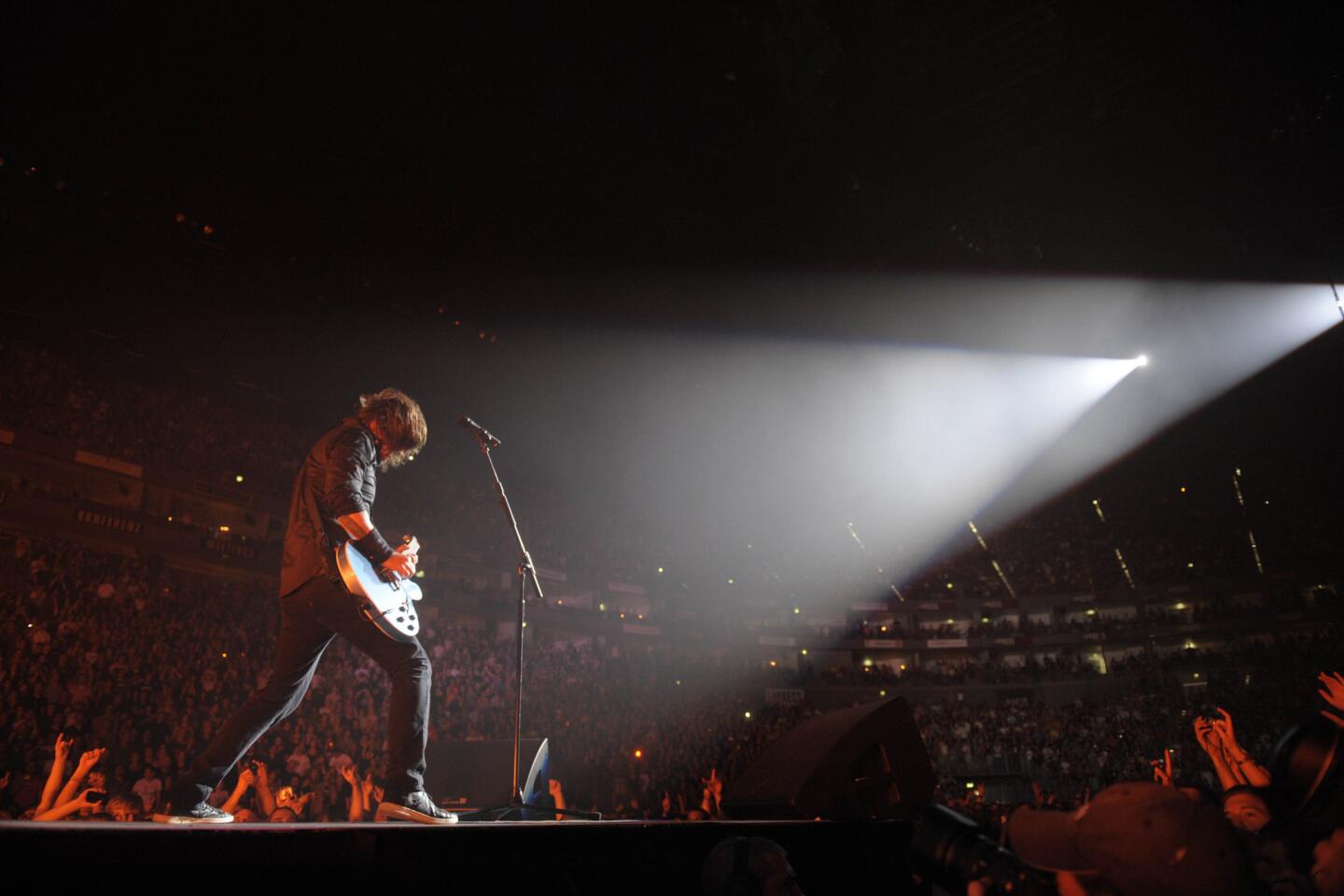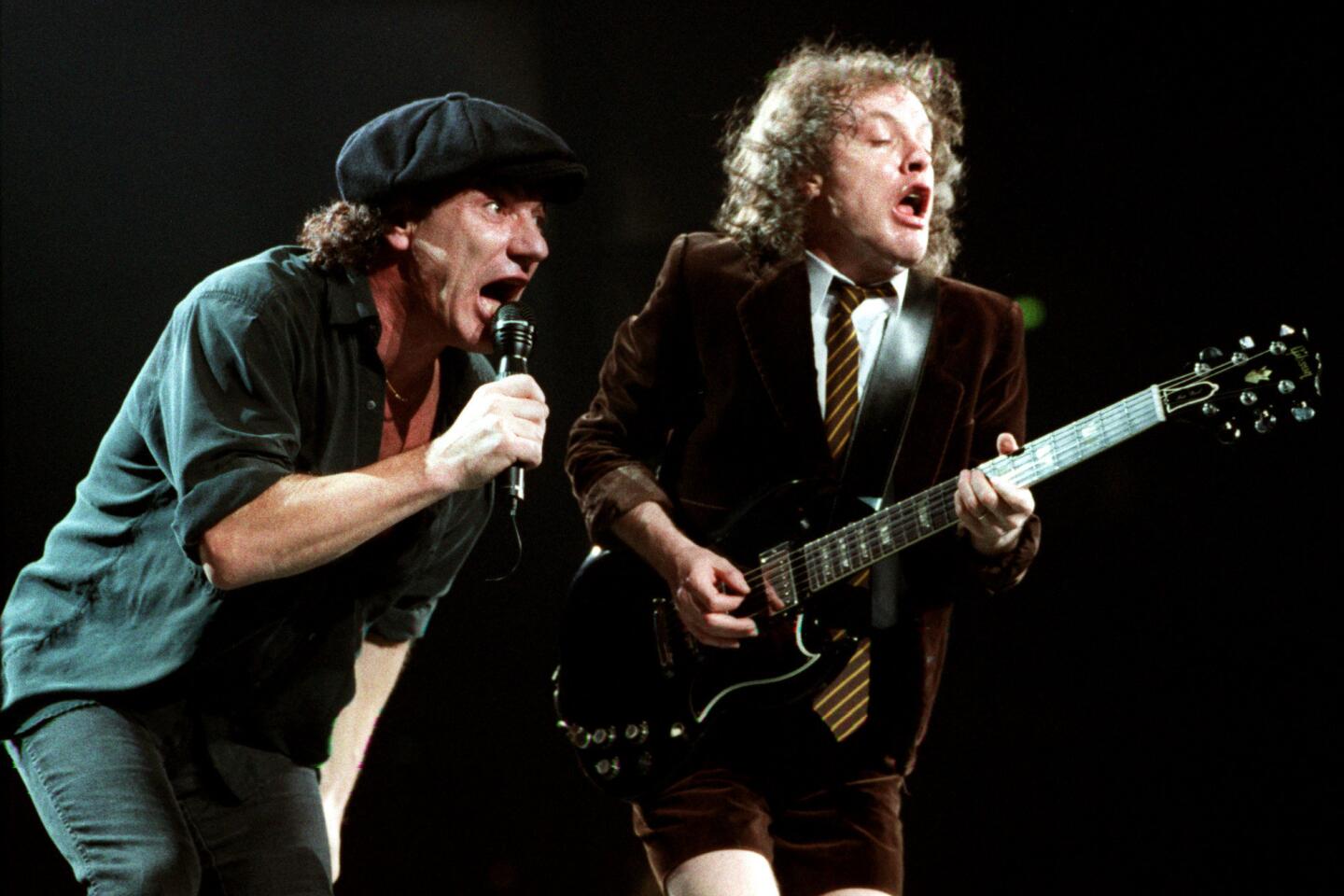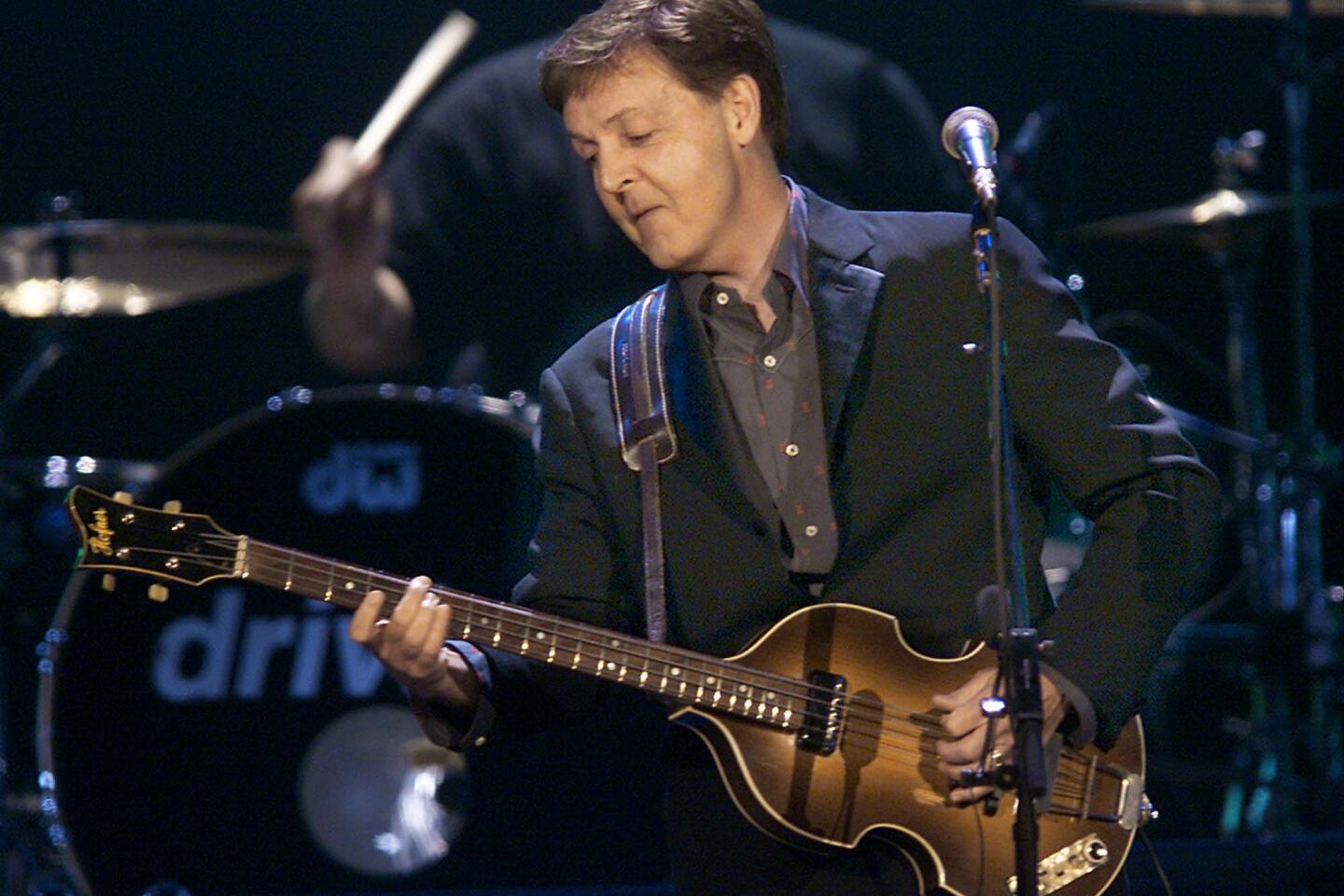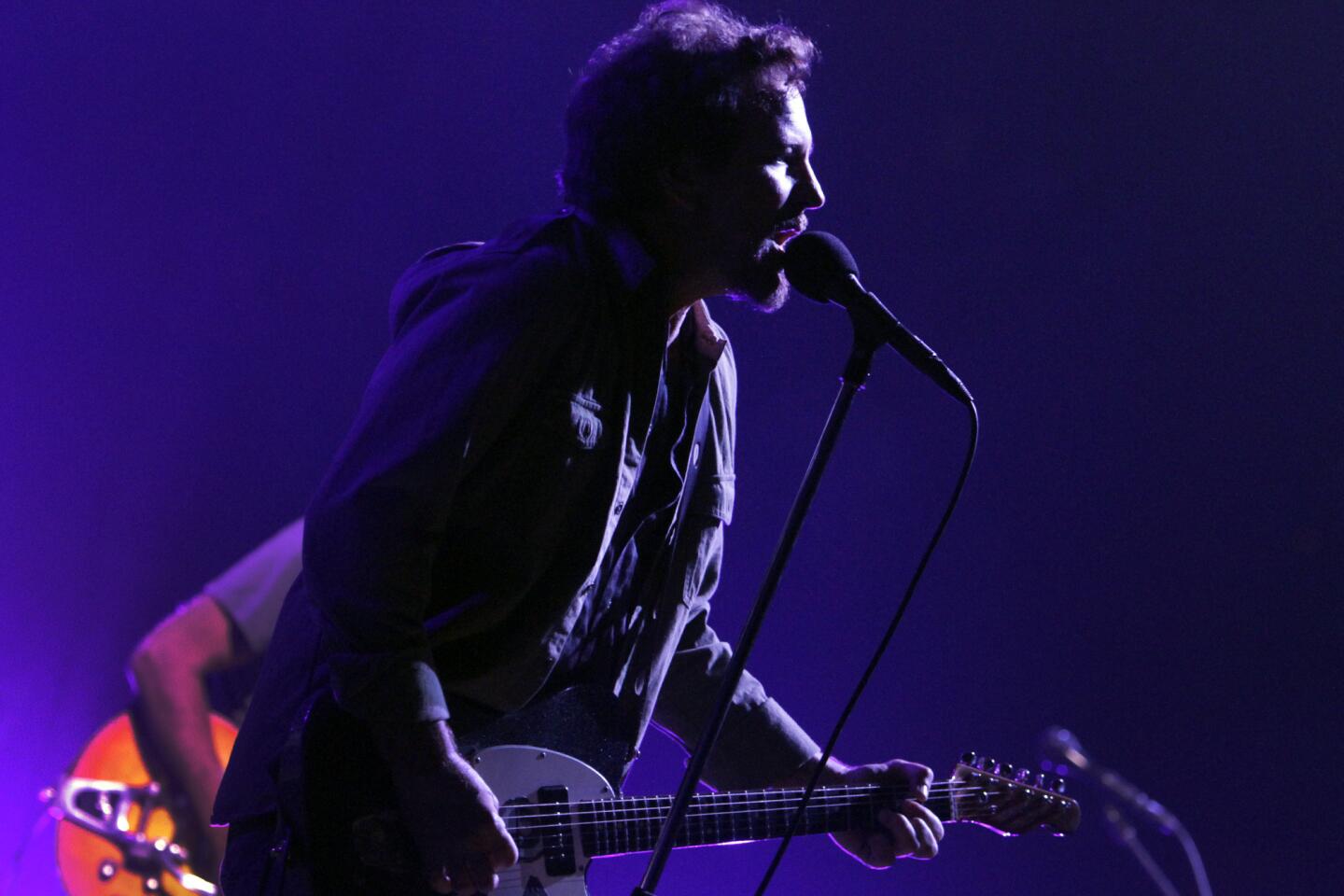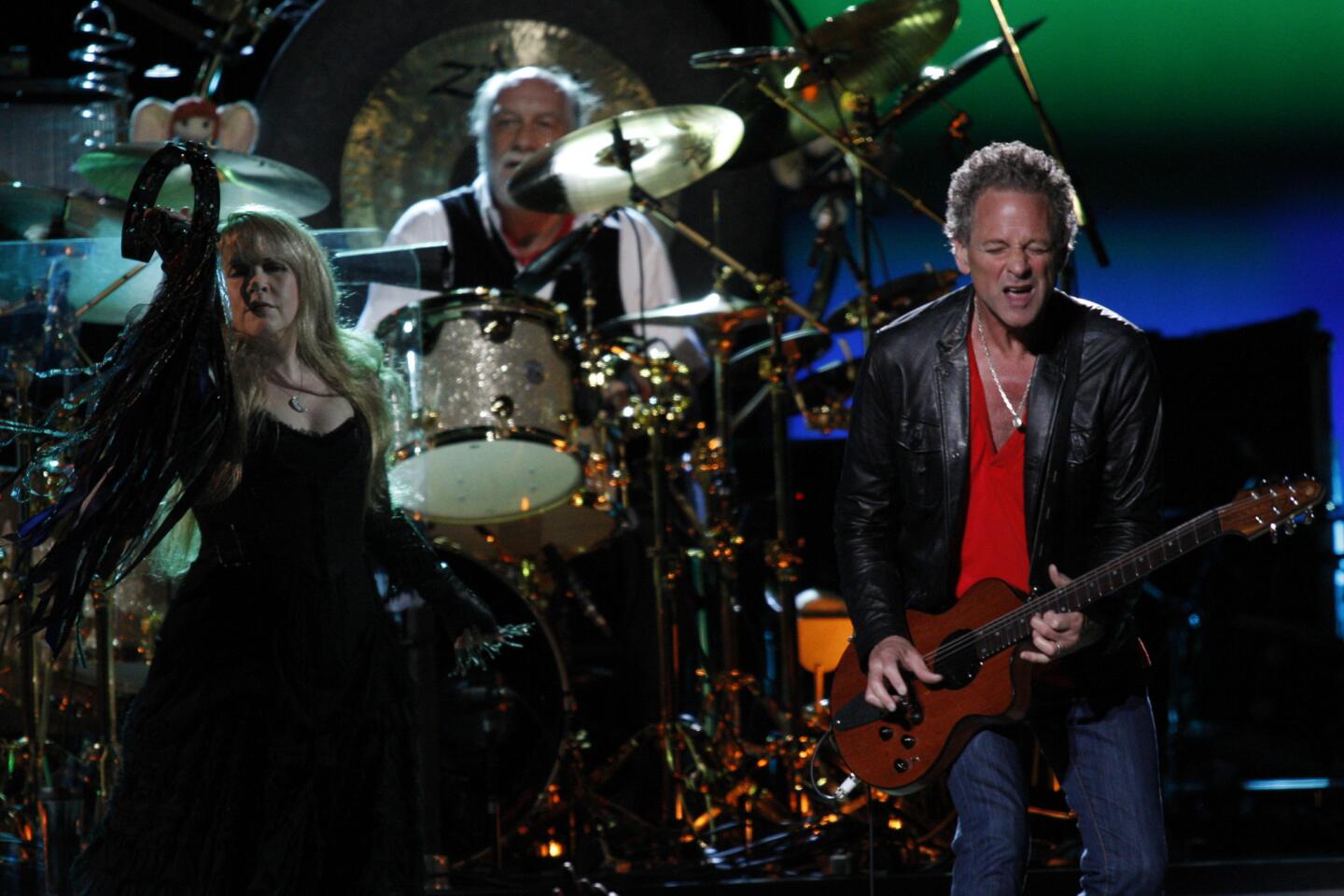As Bruce Springsteen closes out another rock arena, does the same fate await arena rock?
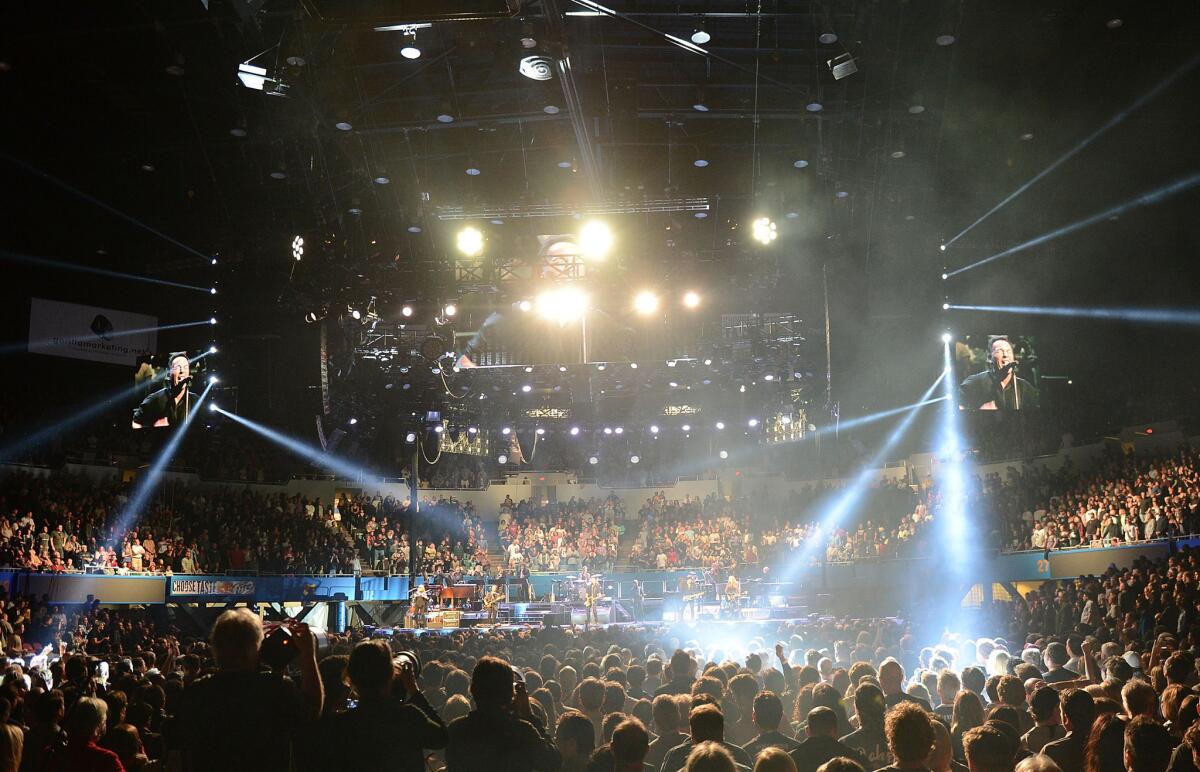
Bruce Springsteen played the Sports Arena in 2012. His shows this week will be the last at the venue.
- Share via
On Tuesday night, Bruce Springsteen will begin a sold-out three-night stand at the L.A. Sports Arena. The shows will be the last concerts at the half-century-old venue in Exposition Park before it’s razed to make room for a new soccer stadium.
It’s a familiar situation for the veteran rocker. In 2009, Springsteen played a string of five concerts at New Jersey’s Giants Stadium before the place was demolished. He even wrote a song for the occasion, “Wrecking Ball,” sung from the perspective of a building “raised out of steel here in the swamps of Jersey some misty years ago.”
But at a moment when new rock music is the least visible it’s ever been — thoroughly overshadowed in the mainstream by pop, country, hip-hop and dance music — is nostalgia the only viable path forward?
See more of Entertainment’s top stories on Facebook >>
As one of rock’s most historically attuned performers, Springsteen is a natural choice to close down the Sports Arena, having first played there in 1980 in support of that year’s “The River” album. Since then, he’s revisited the venue or the neighboring Memorial Coliseum dozens of times — enough to give the dilapidated arena his own nickname, “the Dump That Jumps.”
Still, you have to wonder whether it says something about the imperiled state of arena rock that Springsteen, 66, keeps closing these joints down. That goes double when you consider that his current tour isn’t connected to a new record but to a revival of “The River,” which was reissued last year in a lavish 35th-anniversary box set. (On the road, Springsteen and the E Street Band are playing “The River” in its entirety, then following that up with a set of hits.)
Arena rock isn’t a dead language yet. Last year, U2 toured the world playing most of the tunes on its latest album, “Songs of Innocence”; it even refashioned some vintage songs to more fully touch on current world events.
For the band’s stop in L.A., U2 played five nights at the Forum in Inglewood, that old-school arena-rock staple that’s back in business these days after a vaunted $75-million renovation.
And since it reopened in 2014, the Forum has shown night after night that guys with guitars can still fill a room with space for more than 17,000. (Up next: a nearly sold-out show by Pink Floyd’s David Gilmour on March 27.)
That said, it wasn’t hard to miss the anxiety among some fans on social media when a rumor circulated this month that the Foo Fighters were preparing to announce their breakup. The band, whose frontman, Dave Grohl, sparked speculation with a solo performance on the Academy Awards, posted a video online insisting that the Foos are staying together.
But the feeling was palpable: As one of the very few young(ish) groups keeping the arena-rock tradition alive, the Foo Fighters simply have to stick around, people seemed to be saying. If they call it quits, who will pass the torch?
As one of the very few young(ish) groups keeping the arena-rock tradition alive, the Foo Fighters simply have to stick around ... If they call it quits, who will pass the torch?
You can tell that many veterans are worrying about their legacies because they keep trying out potential successors. That’s what Queen did several years ago when it drafted Adam Lambert, the former “American Idol” runner-up, to fill in for the late Freddie Mercury. Members of the Grateful Dead got in on the act too, teaming with singer-songwriter John Mayer to form Dead & Company, which brought its reanimated oldies to the Forum last year and will tour again this summer.
If this kind of vampirism provides a bit of fresh blood, though, it’s not really solving the bigger problem at hand, which is that so much of this music, even when it’s raking in money, appears to have run out of new things to say.
Nostalgia certainly wasn’t on Springsteen’s mind when he began making “The River.” If anything, the singer, then about to turn 30, was looking ahead to the realities of middle age, as described in songs like “I Wanna Marry You,” with its conviction that “true love can’t be some fairy tale,” and “Out in the Street,” about anticipating the end of a grinding work week.
In Rolling Stone, Springsteen recently called “The River” his “first insider record,” saying that unlike his earlier albums, which reflected a “marginal community” on the Jersey Shore, this one consciously took up “those elements — marriage, work, love, faith, death — that you have in common with everyone else.”
Yet Springsteen’s road show — along with plenty of others on which veteran acts are performing classic records from start to finish — seem designed for a smaller, self-selecting audience composed of folks with specific memories to stir. Along with that comes a kind of implicit surrender, as though the artists have given up trying to express something that might grab listeners more concerned with right now.
Will Springsteen get fists pumping if he revs up “Wrecking Ball” this week at the Sports Arena? Of course — that’s what the man does, even when he’s not saying goodbye. But even the hardest-core Boss fan will have to wonder whether something more is under threat.
Twitter: @mikaelwood
MORE:
Bruce Springsteen to publish his autobiography, ‘Born to Run,’ in the fall
Radiohead announces concerts in Los Angeles, New York and Mexico City
From indie bands to Michelle Obama, SXSW Music wants to do it all. Can it?
More to Read
The biggest entertainment stories
Get our big stories about Hollywood, film, television, music, arts, culture and more right in your inbox as soon as they publish.
You may occasionally receive promotional content from the Los Angeles Times.

